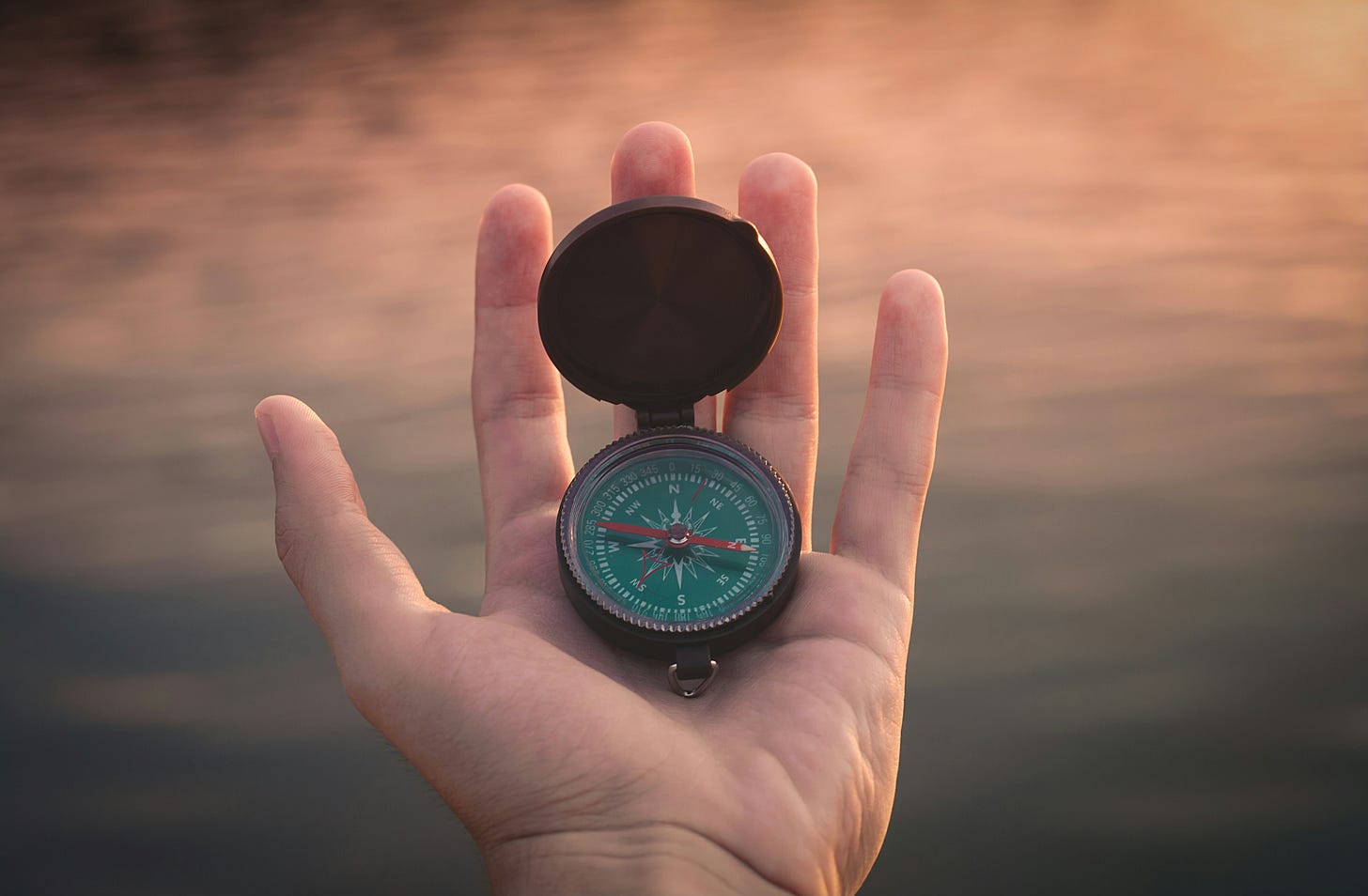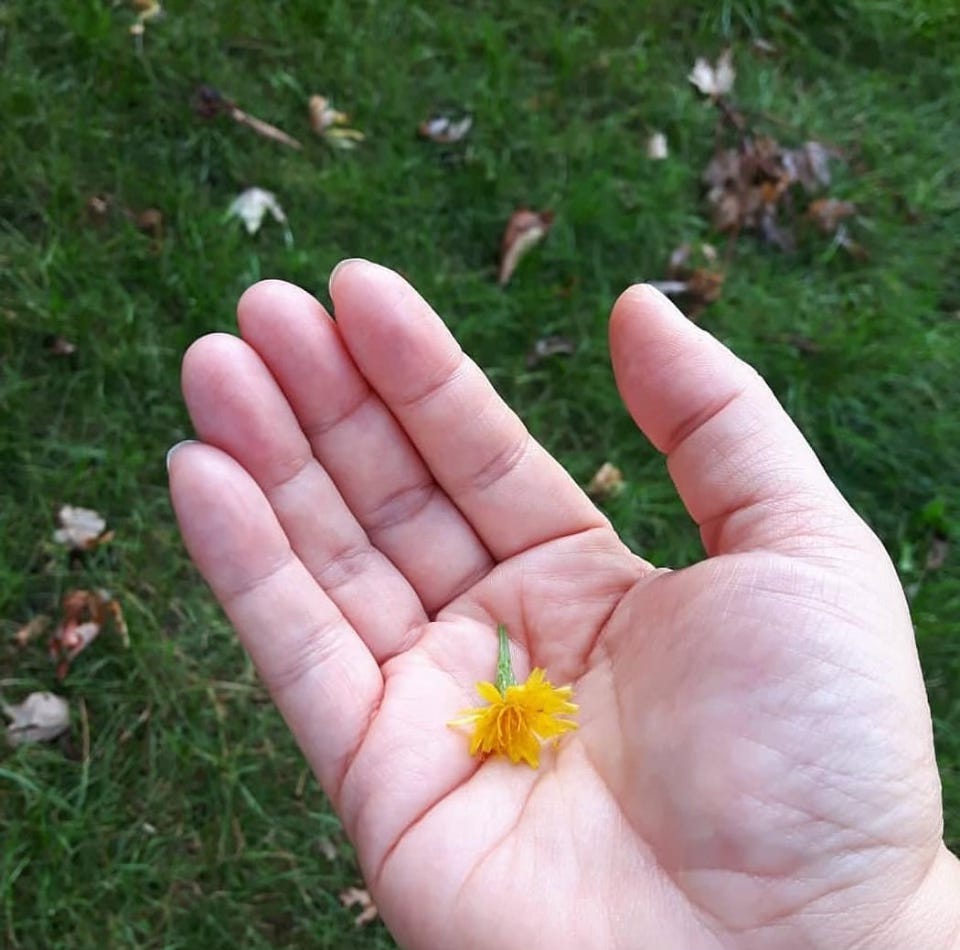Where to from here?
Or, what feeds our imagination when we don't know what to do with what we know?

When I first dabbled into writing, I did so out of a deep sense of obedience. After spending the bulk of my adulthood in the business world, striving for meaning and identity through my work, I crashed and burned.1 I quit my job; I realized I also needed to quit an entire worldview around work. I had to relearn how to be a human being again.
While shedding my workaholism and becoming sober-minded, I felt a nudge toward writing. It was strange; I didn’t study for that/wasn’t an English major, and felt no interest or affection for the craft. Coming to something in midlife with no previous experience is humbling and unsettling.
I was 43 when I burnt out and felt a strange inkling toward words, and 44 when I finally took it seriously because it would not let me be. Since 2016, I’ve been learning what it means to string words together and find what those words might be.
Since I had no reference point–be it training or desire–to orient me, the writerly road has been paved with insecurities and second-guessing. Yet, oddly, at 51, I also understand it’s also been a playground for discovery and exploration when curiosity has prevailed over performance-based fears. In the doing, we learn; in the learning, we become.
I recently attended my first writers’ conference, the Festival of Faith and Writing, in Grand Rapids, Michigan. I’m still answering the question I carried with me on my return flight home two weeks ago–Where to from here?
Where to from here?
That is to say, after four days of listening, learning, reading, pondering, asking questions, and exploring the direction the answers might unfold, what steps do I take? I didn’t want to come home and pack away the memories with no evidence in my life of the insights I gained and the ways my heart moved during that week.
From the wide range of concurrent panels and talks, I crafted my schedule during the event to hear from a mix of authors. I chose writers who were familiar to me and new names I had not heard but whose topics of discussion I found interesting.
The role of imagination.
One such writer was Turkish-American writer Ayşe Papatya Bucak. She spoke on how she creates from the perspective of someone between borders, as the child of an American mother and a Turkish father. When asked how she approaches her stories, she answered with a question to ponder: What is the better world that I’m failing to imagine?
Somehow, that question pierced my own mind about my life lived in faith. If I’ve learned anything this past almost decade since leaving a world I tried so hard to “conquer” so that it would validate me, it is that I lacked the faith to imagine my life without the add-ons I tried so hard to earn. Instead, I tried to check all the boxes that I thought made me valid and relevant—a job title, a bank account to go with, etc.
Among the writers whose work I love and who I got to hear speak was
. Her talk stemmed from her latest book, The Evangelical Imagination.Speaking to a mostly American audience, she said that our imagination is more informed by being American than by faith, arguing that the American dream is pervasive in the social imagination. My life echoed this deeply, even though I’m not American.
“The best stories are not about the ending but how we got there. That’s the Jesus way,” she offered.
I was always so concerned about checking all the right boxes, assured they’d get me to where I wanted to be, that I paid no attention to the view along the way. I blindly fed a self-reliant narrative about my life, seeking evidence of gain and missing the point of living a life held by Christ rather than my own efforts.
The anxiety of having all our ducks in a row, so to speak, can rob life of its mystery. Mystery is cumbersome; it’s hard not to know things, not to know when, how, or if something will come to pass, be it our own success as we define it or our failure as we imagine it.
Being bound by time and space is a burden (and gift) Christians easily ignore in Western culture.
Here’s where another familiar author gave a talk that was a gift. James K. A. Smith’s talk titled “Reckoning, Discernment, Hope: How Narrative Helps Us Faithfully Inhabit Time” was inspired by his book How to Inhabit Understanding the Past, Facing the Future, Living Faithfully. I ran (no joke) to buy it at the festival’s bookstore and found it was sold out. My husband ordered it for me when I arrived, and I have been slowly reading it for the past two weeks.
He said despair tells a future where we can’t imagine resurrection.
Oof…I see that then and now.
During those years of striving, my faith was divorced from my life. My striving was fueled by the narrative that only I could attain what (I thought) was needed to have a full life. There was no hope for being remade; there was only concern with being made into the image of what looked like success.
In the aftermath of my burnout, I’ve often felt unable to look ahead with a sense of direction, only to look behind to the desolation I felt in what I affectionately refer to as “my previous life.” Smith’s words offered much-needed perspective.
I could write a whole post just on the impact of Smith’s idea around spiritual timekeeping, as he calls it. But for the sake of my time and yours:) I will leave you with the reflection that burned in my mind while trying to answer my question: where to from here?
Our lived experience, which includes our embarrassing mistakes and failed experiments, the fun discoveries, the painful realizations, the humbling joys, and the celebrated milestones, all contain our history and are part of the emotional and spiritual DNA used by God to make you and me who we are today. Gifts, skills, and talents unique to each of us are present because of the history that formed them. I shared with my guild, and invited my fellow writers to see these as seeds.
When gauging what direction to take, look at what’s in your hand and imagine what it would look like to take a step outside of what you know. To plant those seeds. It doesn’t need to be a huge endeavour. One small step toward the unfamiliar. Enough to scare you a little. Imagine Jesus–who holds all things together–holding you and whatever the outcome of your step might be. It’s his seed to do with according to his time and purpose; ours is to plant.
On my return from Michigan, I prayed that the end of this year may look a little different than the beginning. I want to see a shift from who I am toward who I’m becoming. I want to cultivate my imagination and courage from a place in my heart that holds on to the hope of the resurrection.
What’s your own “where to from here?” Is there something you want to see look differently in December than it does now?
What might God be inviting to do, to risk?
What would it look like if Jesus were holding you and the outcome?
He is.
Dear Reader:
I’m learning to recognize the things that feed my writing and make breathing room for them. So, I’m shifting things here. Instead of committing to a fixed day of the week for this newsletter, for now, I will pop in here any time I have something to share and the time to write it. Whether that’s far in between or often, thank you for reading my words!
I share about my burnout in this article, this guest post, and this devotional.




Yes! Reminds me of a quote I can’t remember exactly by Lewis. Something about how it’s a failure of our imagination that evil is so often complex and interesting in our stories, and the good is simplistic, when it should be the other way around. God is making a new thing all around us!
And so so exciting you got to go to that conference! Sounds so engrossing to be immersed in all those talks!
Yes! I love the sentiments you highlighted. We can be so good at seeing the pain and destruction around us and ill equipped to imagine a world in which we have mended the "that's life," kind of problems we face on a daily basis and ultimately unable to imagine a world in which the Kingdom comes down to Earth.